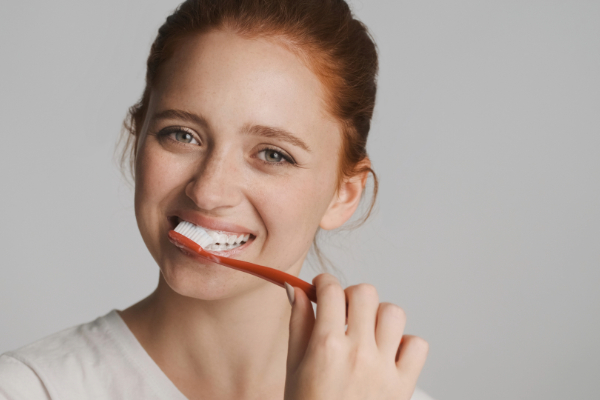
Brushing your teeth might feel like second nature – but are you really doing it properly? At the Family Dental Clinic, we often find that even the most diligent brushers miss a few important steps.
So, whether you need to perfect your routine or you’re teaching little ones how it’s done, here’s a step-by-step guide from our dentists and hygienists in Chichester to keeping your teeth clean and your mouth happy:
Step 1: Find the Right Toothbrush and Toothpaste for You
Manual vs Electric Toothbrush?
Start with a medium-bristled toothbrush – these are gentle on your gums and enamel but still effective at removing plaque. Electric toothbrushes are great if you need a little help with technique or have limited dexterity, but a manual brush can do the job just as well when used correctly.
What Toothpaste Should I Use?
Toothpaste is a personal choice. Some people find that certain brands cause sensitivity or irritation – such as the skin in your mouth peeling or feeling sore (we hear this a lot with some big-name formulas). If this sounds familiar, don’t worry – you’re not imagining it!
We recommend choosing a toothpaste that works with your mouth, not against it. If you’re concerned about ingredients like fluoride, or you have a sensitive mouth, speak to us about gentler alternatives like BioMin or MinaMin C, which are designed to support oral health without triggering irritation.
Read our guide on how to pick the right toothbrush and toothpaste for you.
Step 2: Brush Twice a Day for Two Full Minutes
It’s easy to rush, but brushing for two minutes twice a day is essential. The most important brush of the day? Right before bed – this is when bacteria are most active.
Split your mouth into four sections (top right, top left, bottom right, bottom left) and spend 30 seconds on each. Set a timer or play a song – whatever helps you stick with it!
Step 3: Nail the Technique
Whether you’re using a manual toothbrush or an electric one, technique matters just as much as timing.
Manual Toothbrush Tips
- Angle the bristles at 45 degrees to the gum line
- Use small, gentle circular motions – avoid scrubbing back and forth
- Take your time on each tooth surface: outer, inner, and chewing surfaces
- Brush your tongue gently with a tongue brush/scraper to remove bacteria and freshen breath
It’s all about being thorough, not forceful. Brushing too hard can wear away enamel and irritate your gums.
Electric Toothbrush Tips
- Let the brush do the work for you – there’s no need to scrub
- Gently guide the brush along your teeth and gums, pausing briefly on each tooth
- Move slowly around your mouth to ensure you cover every surface
- Most electric brushes have a built-in timer (use it!)
Electric brushes can be especially helpful if you struggle with technique or want a bit of extra support, but the key is still consistency and care.
Step 4: Don’t Forget to Floss
Struggling with bad breath? Flossing gets into the areas your toothbrush can’t reach – between your teeth and just under the gum line. Plaque and food particles love to hang out here, so daily flossing is key to preventing gum disease and cavities.
Traditional floss isn’t for everyone, so feel free to try floss picks or even a water flosser if that’s easier for you.
Step 5: Mouthwash? That’s Optional
Mouthwash can be a refreshing final step, but it’s not essential for everyone. If you do use it, try to avoid rinsing immediately after brushing, as this can wash away the protective ingredients in your toothpaste.
A Few Extra Tips from Our Dental Team
- Wait at least 30 minutes after eating acidic foods or drinks before brushing – this gives your enamel time to recover
- Cut down on sugary snacks and drinks, especially between meals
- Replace your toothbrush (or brush head) every 2–3 months, or sooner if it’s looking worn
Why A Good Oral Care Still Isn’t Enough…
Even if you’re doing everything right at home, routine dental check-ups and hygiene appointments are still a must.
Why? Because:
- Some problems – like tiny cavities or gum inflammation – can’t be seen or felt until they’ve progressed
- A hygiene appointment removes hardened plaque (tartar) that toothbrushes can’t
- Your dentist can spot early signs of decay, gum disease, or even more sinister problems like oral cancer before they become serious
We recommend a dental check-up every six months, or as advised based on your individual needs. Prevention really is better than cure!
Every Mouth is Different
Whether you’re looking for an alternative toothpaste, struggling with tooth sensitivity, or just want a bit of guidance on technique, our friendly dentists in Chichester are always happy to help.
Visit our Chichester dental clinic or call us on 01243 771171 to chat with us – we’ll work with you to find an oral care routine that works for you.